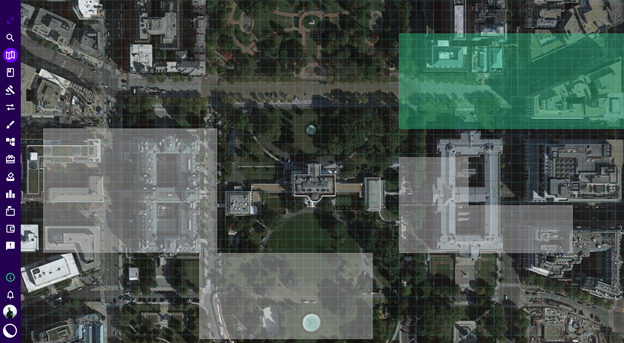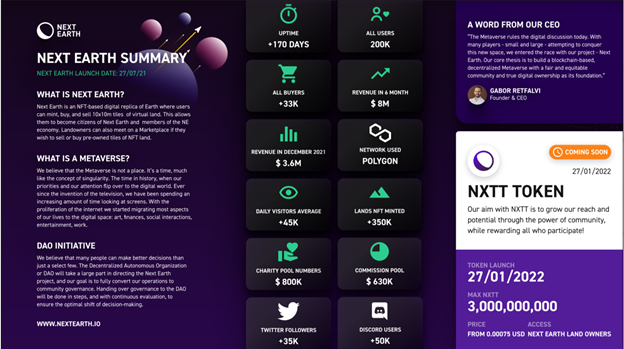In 10-15 years, Gabor Retfalvi believes, we’ll all be living in the Metaverse. And the Hungary-based startup he founded, Next Earth, is taking charge to build a fully democratic, interoperable virtual world where users have true digital ownership over their avatars. “The Metaverse is going to be the next stage of human evolution,” Retfalvi says. “I’d rather live in a world where I have true ownership and agency over what happens to me than in a video game that’s monetizing me to the bones and is owned by a large corporation.” Next Earth aims to revolutionize the virtual world by using the surface of the Earth as its starting point. Virtual landowners become active participants in the Next Earth economy, where they will have access to business opportunities, the
Topics:
Guest considers the following as important: Industry and Adoption
This could be interesting, too:
Bilal Hassan writes Henley Crypto Adoption Index 2024: Singapore Leads Global Crypto Adoption, UAE and Hong Kong Follow
Bilal Hassan writes Hong Kong Launches Sandbox for Project Ensemble to Advance CBDC and Tokenization
Emily John writes Nigeria Teams Up with INTMAX to Speed Up Blockchain Innovation
Suraj Manohar writes India’s CBDC Program Has Now Surpassed 5 Million Users
In 10-15 years, Gabor Retfalvi believes, we’ll all be living in the Metaverse. And the Hungary-based startup he founded, Next Earth, is taking charge to build a fully democratic, interoperable virtual world where users have true digital ownership over their avatars.
“The Metaverse is going to be the next stage of human evolution,” Retfalvi says.
“I’d rather live in a world where I have true ownership and agency over what happens to me than in a video game that’s monetizing me to the bones and is owned by a large corporation.”
Next Earth aims to revolutionize the virtual world by using the surface of the Earth as its starting point. Virtual landowners become active participants in the Next Earth economy, where they will have access to business opportunities, the ability to gain governance over the Metaverse, and receive income based on the activity that takes place on the platform.

VR and user-created content will be essential in the democratized future, but Next Earth’s Metaverse economy is the foundation of its future. The Metaverse economy is self-sustaining, meaning that it can generate its own currency and resources without the need for outside contributors.
This essential foundation will allow Next Earth to create a truly democratic future, in which everyone has the opportunity to be a part of the conversation.
Next Earth is excited to announce its planned token presale starting on January 22nd, 2022, while its launch is slated for January 27th, 2022. Any Next Earth user who owns at least $100 worth of land can participate in the token sale. After the token sale, token holders will be able to stake NXTT on their land to reap the benefits of various rewards and access.

Further, the company will publish a series of proposals called NEIPs (Next Earth Improvement Proposals) that will shape the future of the platform.
The company has already seen a lot of success with its virtual land marketplace. Since launching, the marketplace has seen 2,418 transactions, worth $717,843. User profit has totaled more than $650,000.
Further, land NFTs (non-fungible tokens) have also been a major hit, with 180,000 registered users. The most notable transaction was for New York MET, which was bought for $100 and resold for $32,000.
Next Earth is committed to using its success for good and has already donated $8 million to environmental initiatives. Their mission is not just to create a better virtual world, but to use that world to make the real world better too, and by bringing the power to its users, Next Earth aims at shaping a new age for the metaverse.
Photo by Artezio on Unsplash
 Crypto EcoBlog
Crypto EcoBlog
